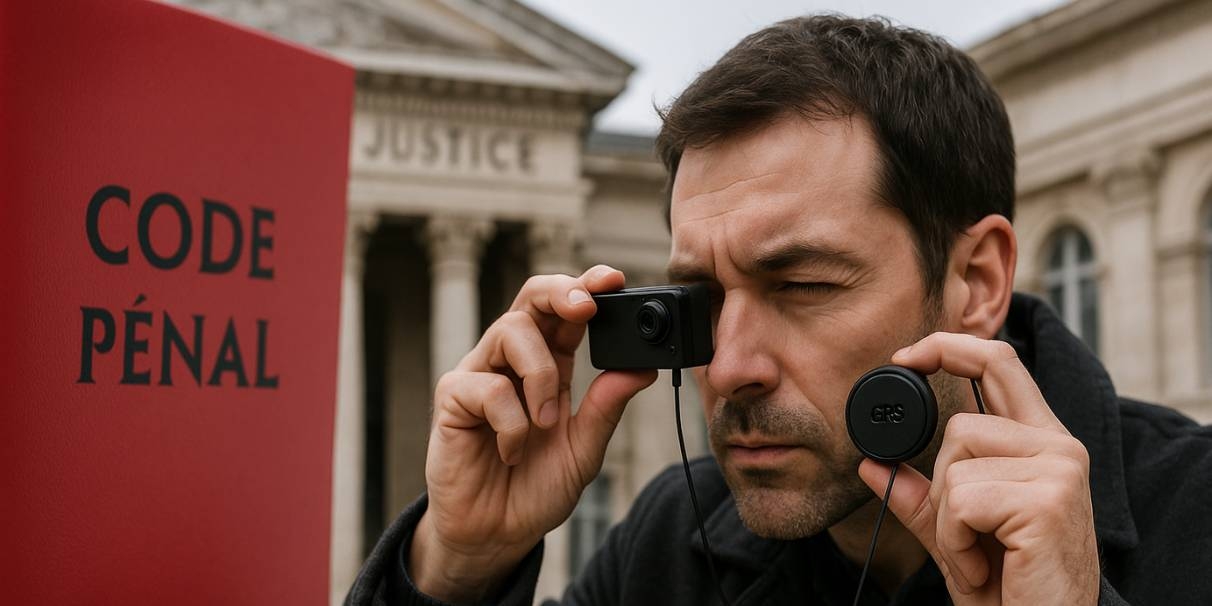Spy camera, spy microphone, GPS tracker: what the law says in Europe

Spy camera, spy microphone, GPS tracker: what the law says in the European Union
Spy cameras, spy microphones and GPS trackers are increasingly used for security, remote surveillance, and evidence collection. But in the EU, their use is subject to strict privacy laws and data protection regulations. This article explains what's allowed and what isn’t under European law, with examples and recent legal interpretations.
1. Spy camera: what the law allows
✔️ Legal use cases
- You may use a hidden camera to monitor your own property (car, storage unit, second home) as long as you do not record other people without their consent.
- In professional settings, visible cameras are allowed if employees or visitors are clearly informed and the system complies with the GDPR.
❌ Illegal use cases
- Recording individuals in private spaces (bedrooms, bathrooms, shared housing) without consent violates privacy laws.
- Using spy cameras in public without signage and justification may lead to legal action under the GDPR or national privacy laws.
2. Spy microphone: strictly controlled use
✔️ Legal use cases
- You can record conversations if you are an active participant, to preserve proof of verbal commitments or threats.
- In a business setting, calls may be recorded if all participants are informed, as required by GDPR and national labor laws.
❌ Illegal use cases
- Secretly recording people in private or professional environments without consent is a criminal offense in most EU countries.
- Recordings used for blackmail or manipulation are severely punished under EU criminal codes.
3. GPS tracker: legal on property, not on people
✔️ Legal use cases
- You may install a GPS tracker in your own car, motorbike, or boat for theft prevention.
- Businesses can use GPS on fleet vehicles, provided employees are informed, purposes are legitimate, and data retention is limited.
❌ Illegal use cases
- Tracking a partner, ex-spouse, or employee without consent is a violation of data protection and privacy laws.
- Using GPS to monitor someone’s movements in a controlling or harassing way is illegal and may be classified as stalking.
4. Can parents monitor their minor children?
Yes, under EU law, parents can use cameras, microphones, or GPS trackers to monitor minor children for safety reasons, as long as it is proportionate and not degrading. For example, placing a tracker in a child’s backpack may be lawful. However, excessive surveillance may violate the child’s rights under the Charter of Fundamental Rights of the European Union.
5. Are illegal recordings admissible in court?
⚖️ In criminal proceedings
Some EU courts allow evidence obtained illegally (e.g., hidden camera) if it helps prove a serious crime, such as domestic violence. Judges weigh privacy violations against the public interest in prosecution.
⚖️ In civil or employment cases
In civil and labor cases, courts are much stricter. Secretly obtained recordings are often rejected unless they are the only possible proof and the method was proportionate.
6. Recent EU case examples
- CJEU (Case C-203/15): The Court emphasized the need for a balance between privacy and the legitimate use of surveillance tools.
- German Federal Labor Court, 2021: Hidden recordings by employers were ruled inadmissible without employee knowledge.
7. Penalties
- Unauthorized audio or video recording: fines and prison depending on national laws (e.g., up to 1 year in France, 2 years in Germany).
- Harassment or misuse of surveillance devices: up to 5 years imprisonment and heavy fines under EU member state law.
8. Conclusion
Spy cameras, microphones, and GPS trackers can be used lawfully within a clearly defined framework. Using them to spy on others without consent is illegal across the EU. Evidence from illegal recordings may sometimes be accepted in criminal courts, but this is rare and context-dependent. Always respect privacy laws to avoid serious consequences.























Comments : 0